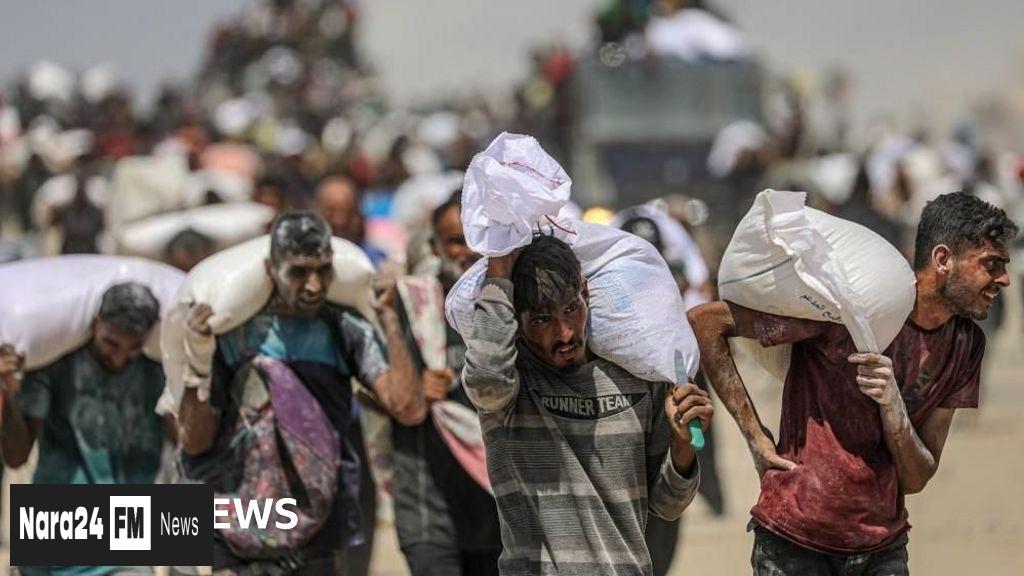In This Article
- Malnutrition Death Toll Rises to 212 in Gaza
- Israel's Military Campaign to Control Gaza City by 2025
- Evacuation Directive Sparks Global Criticism and Internal Dissent
- Aid Access Challenges and Famine Risks in Gaza
- Hamas Resistance and Hostage Threats Intensify
Key Takeaways
- Malnutrition-related deaths in Gaza have surged to 212, including 98 children, with 11 new fatalities reported by the Hamas-run health ministry.
- Israel's security cabinet approved a plan to fully control Gaza City by October 2025, involving forced relocation of one million residents, drawing international condemnation.
- Humanitarian agencies warn the proposed military campaign could exacerbate Gaza's dire conditions, with the UN stating aid inflows remain critically insufficient to prevent famine.
- Hamas threatens intensified resistance against Israeli forces in Gaza City, raising fears of escalated combat and potential execution of 20 remaining Israeli hostages.
GAZA CITY — Malnutrition-related fatalities in Gaza have climbed to 212, including 98 children, according to the Hamas-run health ministry, which reported 11 new deaths on Saturday. The surge in casualties coincides with Israel's controversial announcement of a military campaign to assume full control of Gaza City by 7 October 2025, the two-year mark of the conflict.
In the past day alone, 38 people were killed and 491 injured due to Israeli military operations, the ministry stated. The proposed plan, endorsed by Israel's security cabinet, includes forcibly relocating Gaza City's estimated one million residents to southern areas like al-Mawasi, a sprawling displacement zone already grappling with inadequate infrastructure and overcrowding.
The evacuation directive has drawn sharp criticism from global leaders and sparked dissent within Israel, particularly among military officials and families of hostages held by Hamas. Israeli Defense Minister Israel Katz dismissed international concern, asserting that condemnation “will not deter our determination” to achieve security objectives.
U.S. former President Donald Trump echoed Israel’s stance earlier this week, suggesting it was “largely Israel’s decision” whether to occupy Gaza. Meanwhile, humanitarian groups warn the plan could exacerbate an already dire situation, with the UN stating aid inflows remain “critically insufficient” to prevent famine.
Israel disputes claims of widespread starvation, accusing UN agencies of failing to retrieve supplies at border crossings. The UN, however, cited ongoing obstacles in accessing aid, compounded by violence near distribution points. At least 21 Palestinians were killed attempting to secure relief in the last day, per the health ministry, while 1,373 have died seeking food since May—though the Gaza Humanitarian Foundation denies these figures.
Hamas has vowed to resist the Gaza City takeover, raising fears of intensified combat and potential retaliation against Israeli hostages believed to be held in the city. Reports suggest Hamas ordered captors to execute hostages if Israeli forces approach their hiding places, with an estimated 20 captives remaining alive.
The conflict reignited in October 2023 after Hamas-led attacks on Israel killed 1,200 and took 251 hostages. With Gaza City’s population facing repeated displacement and collapsing infrastructure, aid agencies warn of unprecedented suffering as the deadline looms.








Comments (0)
Leave a Comment
Be the first to comment on this article!